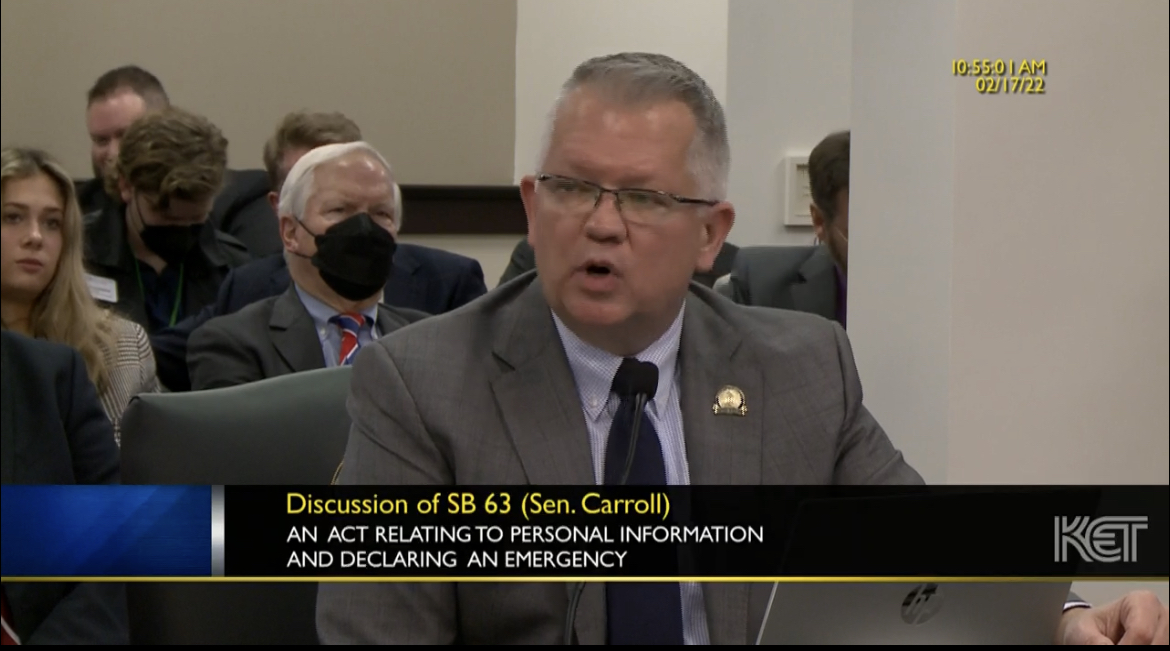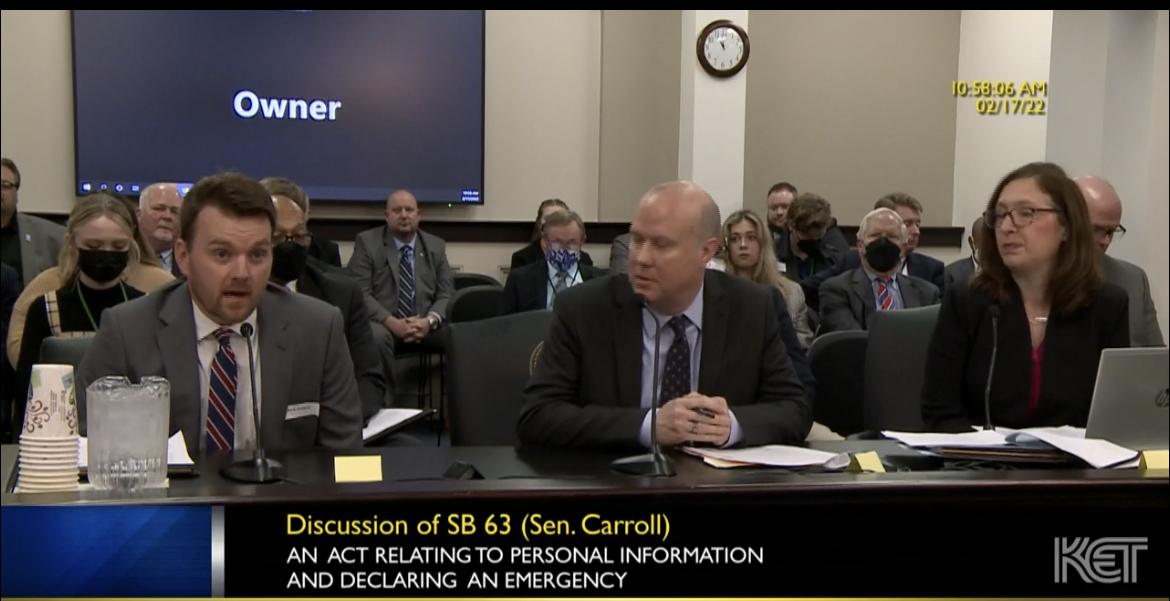

This Lexington Herald-Leader story on SB 63, sponsored by Senator Danny Carroll (R-Benton), contains previously undisclosed information about the bill.
https://www.kentucky.com/news/politics-government/article258501598.html
The bill received its second reading today and is careening toward passage.
A February 16, 2022, Legislative Research Commission “Local Government Mandate Statement” clearly identifies the local government challenges of implementation of the bill.
The Herald Leader reports:
“Roughly 40,000 local public safety employees would have the right to be shielded by the bill, not counting their families or state judicial officials or state social workers or any of their families.
“Removing personally identifiable information about so many thousands of officials and their families from paper and digital files and websites would not be easy, the analysis said.”
The Herald Leader quotes the LRC analysis:
“‘The legislation may prevent localities from publishing certain delinquent taxpayers and/or selling all delinquent tax bills to a third party.’
“‘With respect to county clerks, the legislation is anticipated to increase duties in already understaffed offices. With the various documents under their purview including those relating to marriages, voter data and vehicle information, there are concerns about the ability to comply.”
Nothing, it seems, will dissuade lawmakers. The entreaties of the Kentucky Press Association, the Kentucky Broadcasters Association, and the Kentucky Open Government Coalition have fallen on deaf ears.
The Herald Leader continues:
“Opponents told the Senate committee on Thursday that Carroll’s bill would undermine the Kentucky Open Records Act, which provides journalists and other citizens with access to documents and data held by public agencies.
“Campaign finance reports disclose political donors’ names and addresses, including those in public jobs, they said, and tax and property records have yielded legitimate news stories about public officials. The law already allows for agencies to withhold certain private information, such as Social Security numbers and medical records.
“While a news organization is unlikely to publish a public official’s date of birth, reporters use such information while preparing their stories to be certain they have the correct person and not someone else with the same name, WKYT news director Robert Thomas said.
If Kentucky requires that swaths of public records be blacked out, accurate news reporting will become that much harder, Thomas said.”
The Kentucky Open Government Coalition submitted written comments to the Judiciary Committee in which it stated it’s objections to SB 63:
“1. SB 63 fails to address public agency implementation and provide parameters for measuring public agency compliance. Documented challenges associated with implementation of New Jersey’s ‘Daniel’s Law,’ the state law on which SB 63 is based, necessitated cessation of the law and immediate statutory revision.
“2. Without exception, the personally identifiable information to which SB 63 extends protection, is already shielded from disclosure by KRS 61.878(1)(a), the Open Records Act privacy exception. These “enhanced” protections are redundant.
“3. SB 63 signals a seismic shift in the Open Records Act from a disclosure statute to a nondisclosure statute. It’s reverses the legislative policy recognizing that ‘free and open examination of public records is in the public interest.”
Media representatives have identified threats associated with passage of SB 63.
The Kentucky Open Government Coalition has identified threats associated with passage of SB 63.
And now, it seems, the Senate’s administrative arm, the LRC, has identified threats associated with passage of SB 63 (based on data obtained from the Kentucky County Clerks Association, the Kentucky Municipal Clerks Association, and the Kentucky League of Cities).
The Senate’s dogged determination to pass this seriously flawed bill will inevitably bite it (or the officials left to implement it) in the butt.


